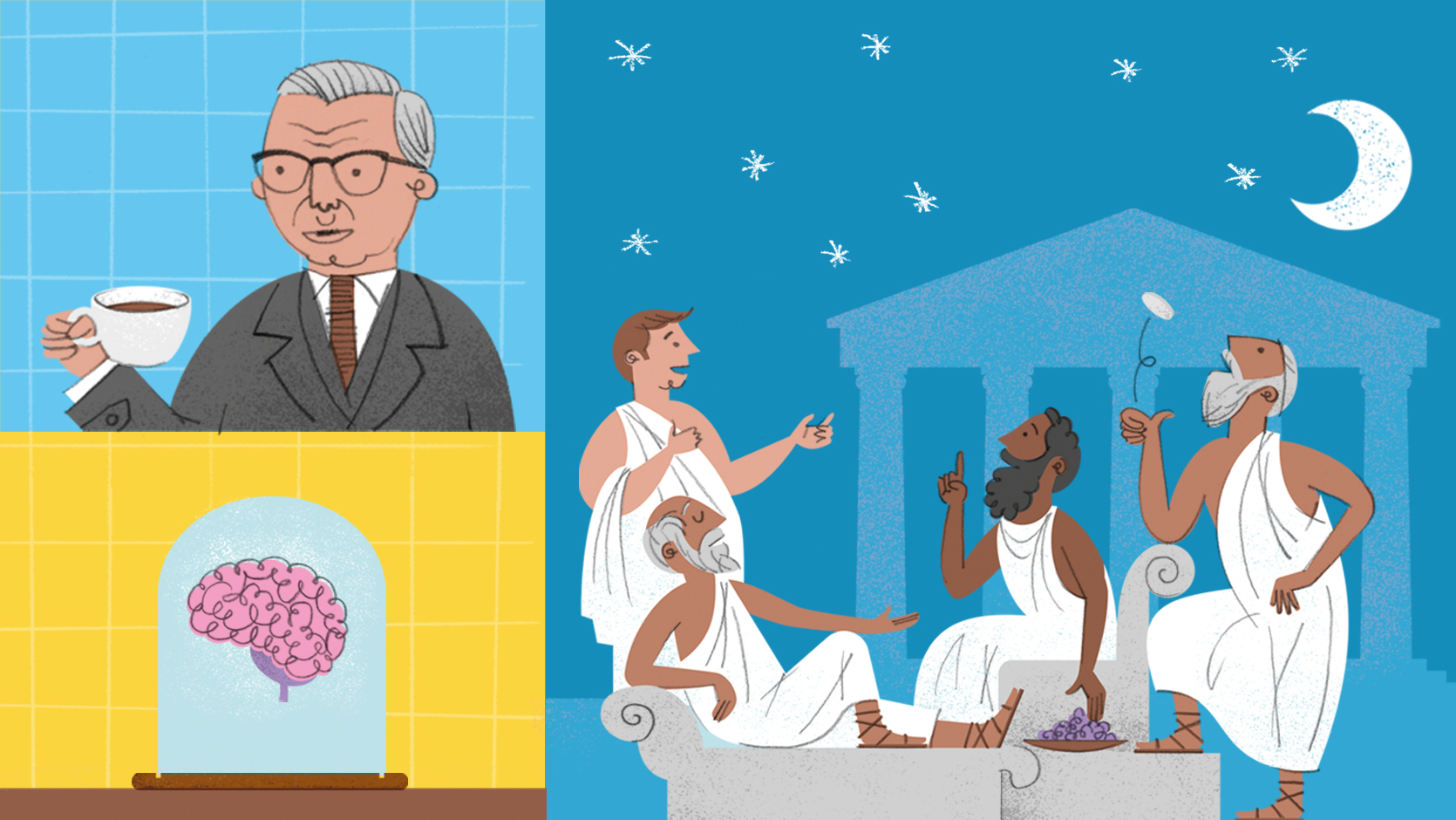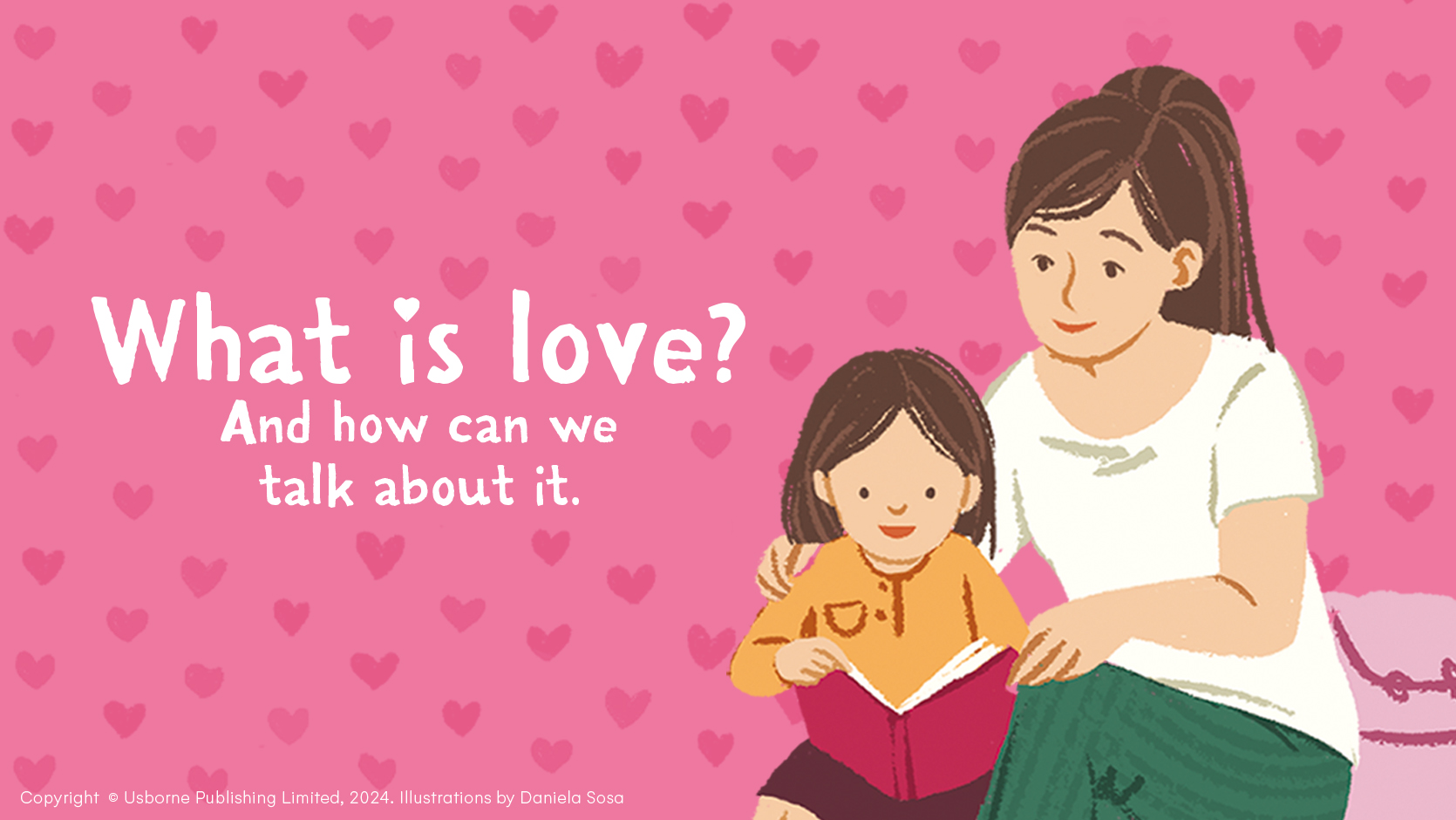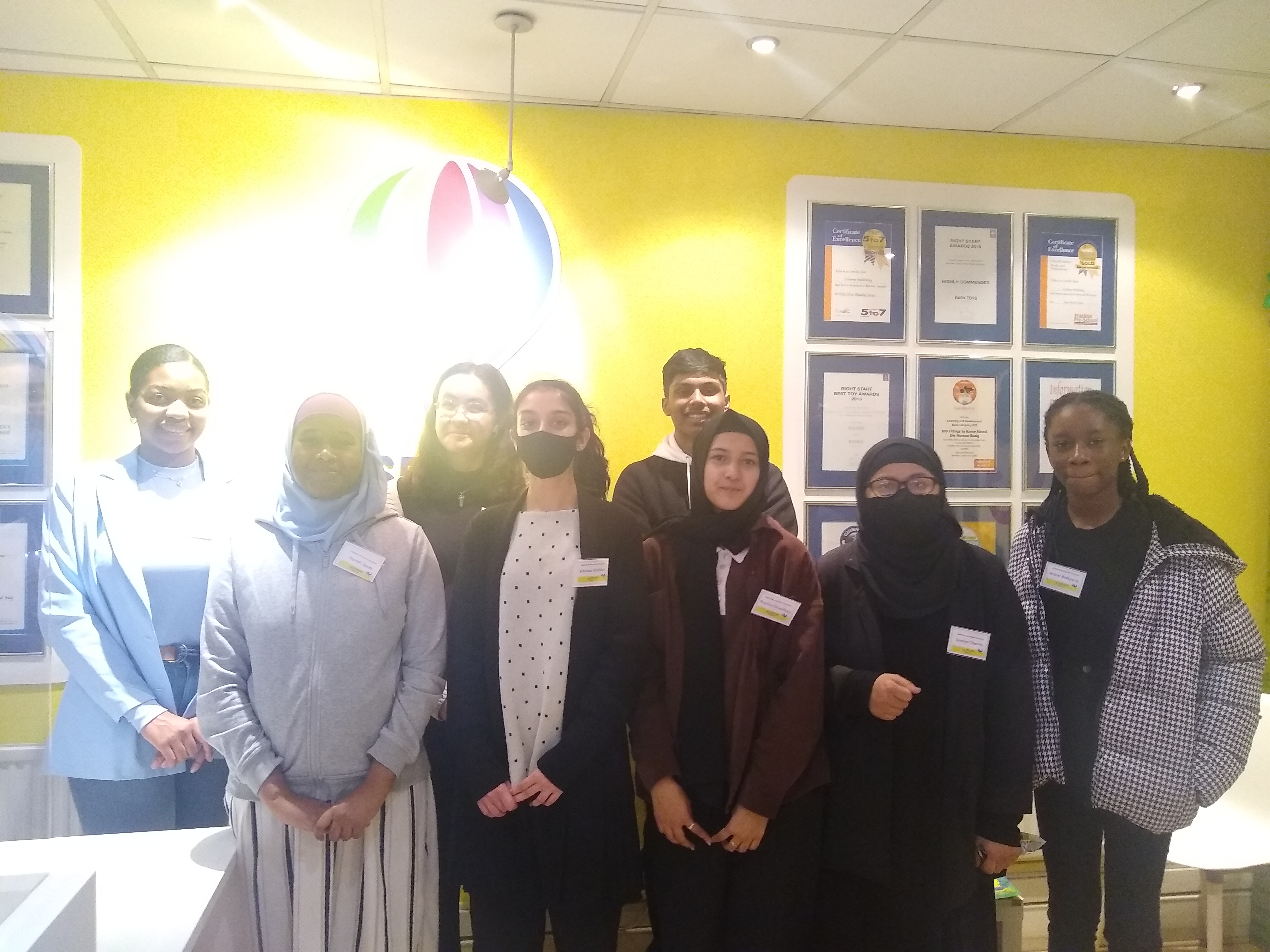- Behind the scenes at Usborne
What is philosophy and why is it important for children?

Usborne's Philosophy for Beginners editor Alex Frith joins authors Minna Lacey, Rachel Firth and Jordan Akpojaro to discuss the big questions – from 'is a human always a person?' to 'could a society work without a government'?
What is philosophy, and why do we like talking about it?
Alex Frith: Philosophy is about exploring ideas. Serious ideas, but also wild and crazy ideas, too. One of my favourite philosophy ideas is ‘what if I’m not really a person, I’m a brain inside the body of a robot that thinks it’s a person?’ Partly this is because I like the idea of being a robot, but also it’s because you simply cannot PROVE that I am not, in fact a brain inside a robot body, even though it seems incredibly likely that I am a plain old human being.
Minna Lacey: But what is a plain old human being? What does that mean? I like Philosophy because it makes me question things, things that people say and things we often take for granted. It helps me work out what people really mean and whether they mean what they say. But then again, how do we ever know if we fully understand each other, or if my words and language have the same meaning as yours? I think I’m going in circles here…
Rachel Firth: Some people might say that if you are able to think that you are a person, you probably are one. Thinking about your own thoughts is quite clever, after all, and it’s exactly the sort of thing we think of a person as doing. Of course, it’s going to depend partly on what you think a person is. Is it enough to be able to think about your own thoughts? Or do you have to be a human being as well? Why couldn’t a very intelligent robot be a person?
Doing philosophy is one my favourite things because it makes me think really hard about all sorts of ideas, just like that one. A bit like doing a really tricky puzzle - even if I don’t solve it, it’s still fun trying. But sometimes philosophical ideas really matter, too. One day we will build a really clever robot that seems to be able to think for itself. When we do, we will need to decide whether to treat it as a person or not, and philosophy can help with this.
Jordan Akpojaro: Does a newborn baby think of itself as a person? If it doesn’t that would mean that sometimes a human isn’t a person – which is a very strange idea. I guess normally we only think of grown-ups as persons: people who are able to make decisions for themselves and do things like vote.
I think this discussion is a good example of why I like philosophy! It’s interesting to explore ideas with different people, and it’s also interesting to see how these ideas affect many things in the world. Many 16 year-olds argue that they’re able to make decisions for themselves, and vote – but because they aren’t adults in some parts of the world, they are not able to. And they have discussions like this to try to persuade people that they should be able to vote.
People often philosophise without even realizing it!


Pages from Philosophy for Beginners
Why you should care about philosophy, no matter how old or young you are?
Alex Frith: One of the best bits of doing philosophy is challenging people to make sense of their own ideas, and why they believe them. It’s especially fun to challenge people’s assumptions. Assumptions such as: ‘children don’t need to know about philosophy’, or ‘philosophy is too difficult,’ or ‘philosophy has never solved any problems.’
What if all those assumptions are wrong?
Rachel Firth: It’s not only fun to challenge assumptions, it’s important. When people have muddled up ideas, it can lead to misunderstandings and sometimes even make people do things that harm others. Philosophy can help you to learn how to sort out your own ideas, and express them more clearly so that others can understand them more easily.
It can also help you to spot when other people’s ideas and arguments are confused, and even more importantly, work out exactly what’s wrong with them.
Alex Frith: I think that counts as an example of a problem that philosophy has helped solve – proving when people’s arguments are wrong.
Jordan Akpojaro: Philosophy pops up in all sorts of places since everyone has ideas. From the practice of medicine, to art, to what children learn at school, people’s ideas shape how we look at the world - it even influences how some countries are run! Learning about philosophy can help people understand their societies better.
One cool thing is that philosophy can make you consider things you might not have thought about before such as, could society work without the police? What about without a government?
Minna Lacey: Yes, Philosophy pops up everywhere! I don’t think I realized before how much I use it in everyday life to order my thoughts and to try to explain myself more clearly. It helps when I’m trying to find a good reason why I like a book or TV show, especially if I also want to persuade my best mate to read or watch it. Philosophy also helps me simplify and choose what point to make in an email or any piece of writing, and make difficult decisions when there is no clear or right answer.
What do YOU think? Find lots more challenging ideas in Philosophy for Beginners.




